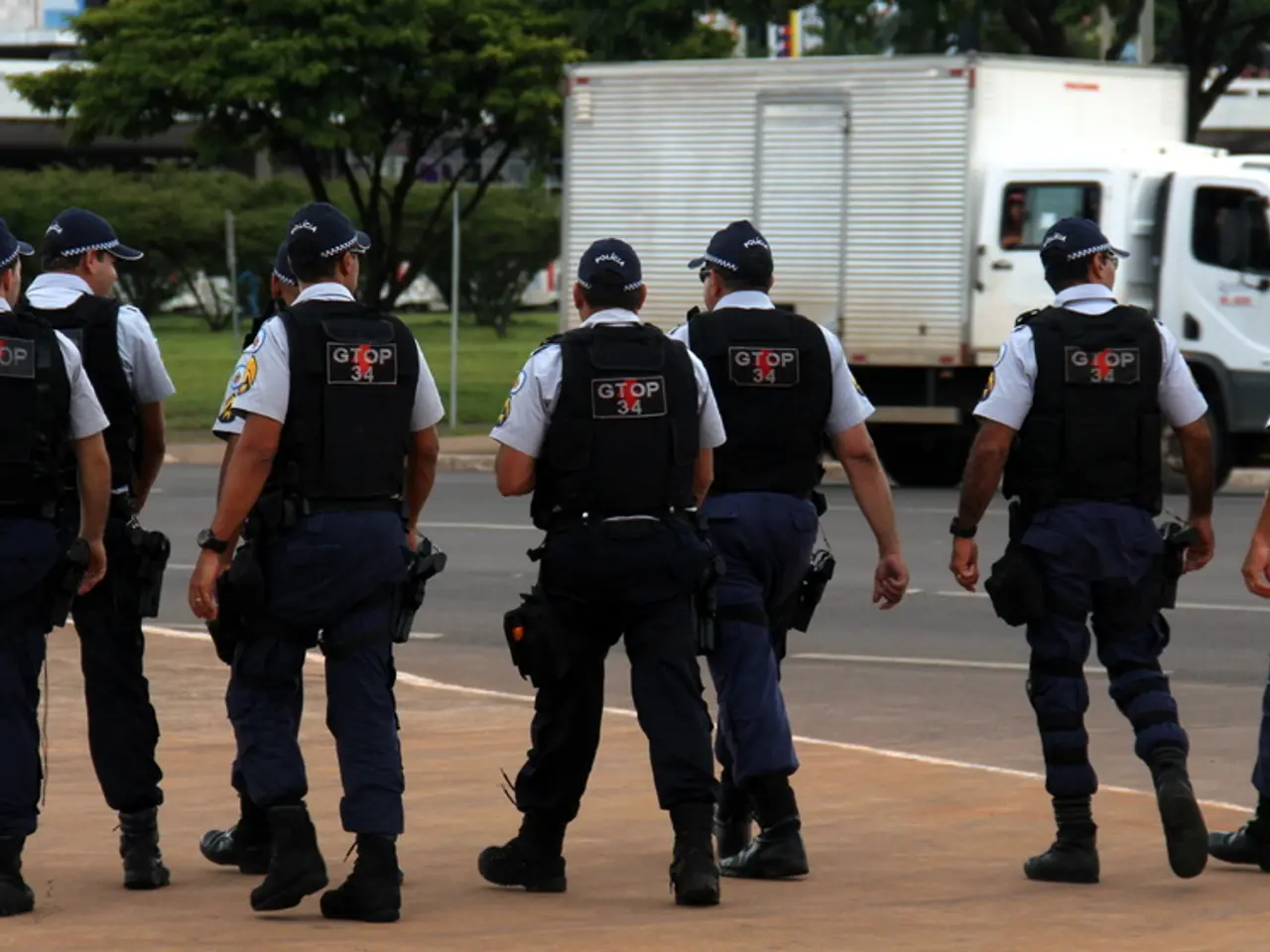Trump Initiates Control Over District of Columbia Police Forces as National Guard Troops Deploy
In a move that has sparked both legal debate and public concern, President Donald Trump has taken steps to increase law enforcement in Washington D.C. This action comes amidst ongoing efforts to address homelessness, crime, and security in the nation's capital.
The U.S. Park Police has removed 70 homeless encampments, and the Trump administration has deployed 800 National Guard members in the city. This deployment was announced by President Trump, who also announced plans to take over the District's police department. However, the legal implications of these actions are complex.
The Posse Comitatus Act (PCA), a law from 1878, restricts the use of the federal military for domestic law enforcement. However, the scenario in D.C., which is federally governed, is legally ambiguous without an invocation of the Insurrection Act. A key legal precedent cited is a 1989 Office of Legal Counsel (OLC) opinion which stated PCA restrictions do not apply to the D.C. National Guard when supporting local law enforcement efforts.
The use of National Guard troops from other states is also a contentious issue. While legally controversial under Title 32 status, the Trump administration has argued that this deployment is necessary to restore "law and order." About 850 federal law enforcement officers were deployed in Washington on Monday and arrested 23 people overnight.
Regarding the takeover of the D.C. Police Department, no law explicitly allows the President to assume direct control over the municipal police forces in D.C. Any federal takeover or replacement effort raises serious constitutional and jurisdictional questions, besides concerns about abuse of power and public safety.
Trump's August 11, 2025, memorandum ordered the mobilization of the D.C. National Guard and authorized coordination with state governors to bring in additional Guard troops. The memo included a disclaimer that it does not create enforceable legal rights for anyone.
In summary, the Trump administration's actions reflect a maximalist and legally aggressive interpretation of presidential and federal authority over D.C. This approach has the potential to set precedents for broader military involvement in domestic law enforcement, sparking ongoing legal debate and public concern.
Meanwhile, Mayor Muriel Bowser has pledged to work alongside the federal officials overseeing the city's law enforcement. Bowser states that Trump holds the majority of power in the situation, with limited autonomy for local officials. Bowser and the MPD maintain that violent crime overall in Washington has decreased to a 30-year low after a sharp rise in 2023.
Jeanine Pirro, Trump's replacement candidate for U.S. attorney, was recently confirmed. Pirro called Trump's takeover "the step that we need right now to make criminals understand that they are not going to get away with it anymore." However, it is important to note that Trump has not proposed solutions to the root causes of homelessness or crime.
Ed Martin, Trump's original choice for U.S. attorney for the District of Columbia, issued a press release in April hailing a 25% drop in violent crime rates. Despite these efforts, the situation in Washington D.C. remains a complex and evolving issue, with legal, political, and social implications that will continue to be debated and addressed in the coming months.
References: 1. Legal Analysis of Trump's D.C. National Guard Deployment 2. Trump's Aggressive Approach to Law Enforcement in Washington D.C. 3. Trump's Memorandum on D.C. National Guard Deployment 4. Constitutional and Jurisdictional Questions Raised by Trump's D.C. Police Takeover Proposal
The deployment of National Guard members and the takeover proposal of the D.C. Police Department, as part of President Trump's efforts to address crime and security, have spurred general-news discussions, with legal debates centering around the Posse Comitatus Act and the Insurrection Act. Moreover, the increase in law enforcement activities, including the removal of homeless encampments, has also been a topic in the realm of crime-and-justice news.






